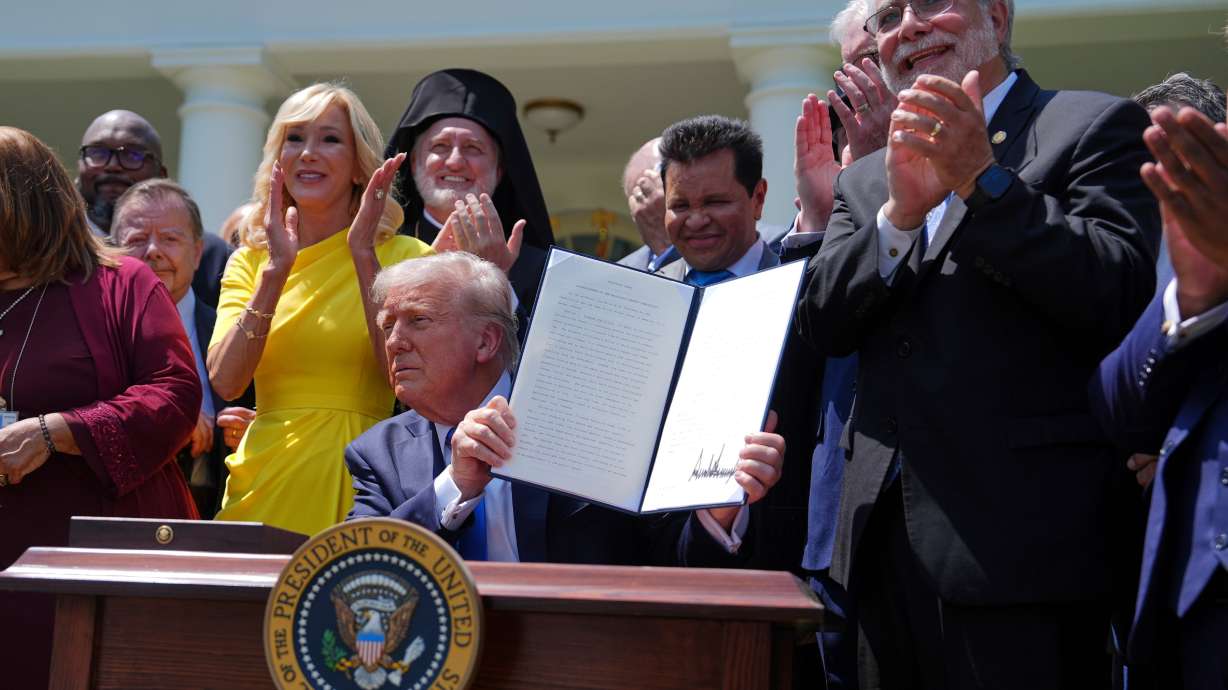- Attorney General Pam Bondi addressed the Religious Liberty Commission's first meeting.
- The commission, created by President Donald Trump, aims to promote faith and religious freedom.
- Critics argue it may promote Christian Nationalism rather than true religious liberty.
WASHINGTON — Attorney General Pam Bondi addressed members of the Department of Justice's Religious Liberty Commission ahead of its first meeting, held at the Museum of the Bible.
"Our Founding Fathers understood that every individual must be free to worship without fear, without coercion, and without government interference," Bondi said Monday.
She highlighted President Donald Trump's action in May to create the commission and said it served as a reminder that faith was built into the documents of the nation under the First Amendment.
"Together, we will return America to the vision of our founders, a nation where faith merely isn't tolerated, but it's embraced and celebrated," Bondi said.
Trump signed an executive order on May 1, which is National Day of Prayer, to establish the presidential commission. The commission's panel members include former Housing Secretary Ben Carson, TV talk-show host Phil McGraw and Texas Lt. Gov. Dan Patrick, who is the chair.
Patrick said Monday that he and Trump spoke after the 2024 election about establishing the commission and that "the time was right."
"A presidential commission does not report to Congress, but the findings from our committees will be reported to the president to see what action would happen after that," Patrick said.
He also noted that the commission plans to host seven to nine hearings and the next one will be held in September and the gatherings will go into 2026. Patrick said that when they were creating the committee, they thought about who they wanted to join the effort.
"We want faith leaders. We want scholars. We want historians. We want people who have been to the Supreme Court and been involved in a number of cases on religious liberty," he said.
Bondi said she was honored to not only serve as a member of the committee, but that the commission is housed in the Justice Department.
"I can assure you that the DOJ will use every legal and constitutional tool available to ensure Americans can live out their faith freely, without fear," she said. "I am filled with hope for what lies ahead."
While Bondi said she is hopeful and appreciative of Trump's efforts to expand religious liberty, some groups are concerned that the action could be used to only promote Christian beliefs.
Trump's executive order does not specifically cite Christianity, but the accompanying fact sheet does. It states there is a task force designed to "eradicate anti-Christian bias," and criticized the Biden administration for targeting Christians and ignoring anti-Christian offenses.
"They say separation between church and state. They told me. I said, 'All right, let's forget about that for one time,'" Trump said at the National Day of Prayer event announcing the commission. "We said, 'really? The separation?' I don't know, is that a good thing or a bad thing?"
"I'm not sure, but whether there's separation or not, you guys are in the White House, where you should be, and you're representing our country, and we're bringing religion back to our country, and it's a big deal," Trump told the commission.
Americans United for Separation of Church and State issued a statement about the commission's first meeting, criticizing the event.
"Today's meeting confirmed what we predicted when President Trump announced his commission last month: The commission's goal is to promote Christian Nationalism, not true religious liberty," President and CEO Rachel Laser said in the statement.








